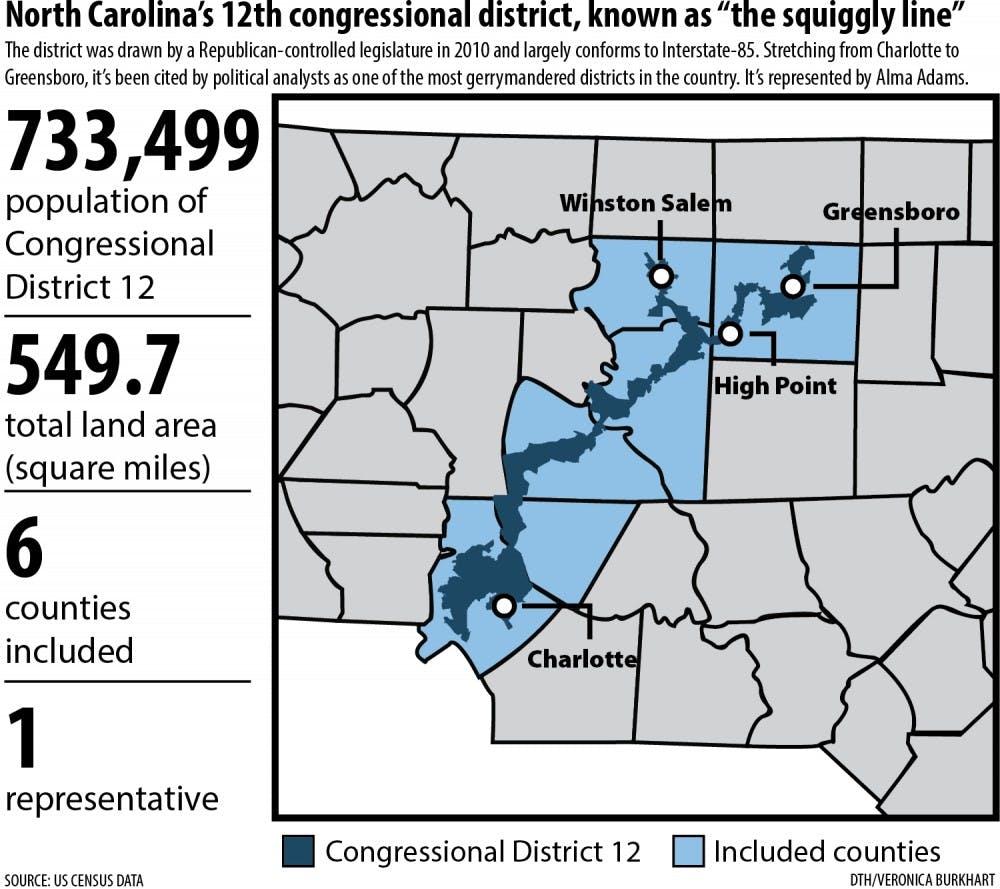For decades, both congressional and state legislative districts throughout North Carolina have been subject to gerrymandering, or manipulating the boundaries of political districts to sway elections in a particular party’s favor. The phenomenon is commonplace in more than half of the states, where state legislatures are tasked with redistricting after each new census.
“The way redistricting gets done these days does not reflect the population of the state,” said Jane Pinsky, director of the North Carolina Coalition for Lobbying and Government Reform.
A bipartisan group of 63 N.C. House members is trying to change that with House Bill 92, which would establish a nonpartisan redistricting commission to oversee the process starting in 2020.
“I think that redistricting is important to the functioning that governs the state,” said Rep. Chuck McGrady, R-Henderson, a primary sponsor of the bill. “I think that we’ll all get a better result if we try our best to put the redistricting in the hands of a more or less neutral body.”
Gerrymandering tends to reduce the competitiveness of elections. Since 1992, about 43 percent of state legislative races have had only one candidate on the ballot, and just 8 percent of 2014’s races were competitive — meaning they were won by 5 percentage points or fewer.
The commission would adjust the districts as needed after each census and present a revised map to the legislature, which would then hold public hearings on the topic. The legislature can then accept or reject the proposal.
“It doesn’t allow people to look at political factors like where incumbents live, the political makeup of the district and voter turnout the last time, so it makes it apolitical,” Pinsky said.
According to a 2013 poll commissioned by the N.C. Center for Voter Education, 70 percent of North Carolina voters support creating a nonpartisan redistricting process.




